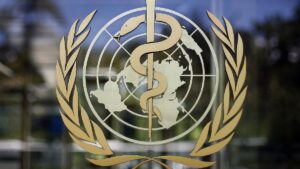How the US withdrawal from WHO is likely to fuel vaccine hesitancy and the war on science

The United States’ decision to withdraw from the World Health Organisation (WHO) under President Donald Trump’s renewed leadership marks a pivotal moment for global health. The move is emblematic of an inward-facing “America First” approach that prioritises national interests at the expense of international cooperation.
Beyond the immediate financial and logistical implications, this decision strikes a blow to public trust in scientific institutions and fuels a growing wave of vaccine hesitancy—threatening to unravel decades of progress in global health, particularly in the Global South.
WHO’s role in vaccination efforts
For decades, WHO has spearheaded vaccination campaigns that have saved millions of lives. From eradicating smallpox to battling polio, the organisation has been a driving force behind efforts to combat preventable diseases. In 2023 alone, WHO-led initiatives vaccinated 370 million children against polio, saving countless lives and preventing lifelong disabilities. These successes have been supported by the United States, historically the largest donor to WHO, contributing over $400 million annually.
Vaccines are among the most cost-effective tools for preventing disease and reducing mortality. They save an estimated five million lives annually by protecting against diseases such as measles, diphtheria, and tetanus. However, the United States’ withdrawal from WHO introduces significant uncertainty into the global health landscape. Funding gaps could delay vaccination campaigns, disrupt vaccine distribution, and leave millions of children vulnerable to diseases that are entirely preventable.
A decline in trust
The United States’ intended withdrawal coincides with a worrying trend: a decline in global confidence in vaccines and science. A 2023 Pew Research Centre survey revealed that only 58% of Americans view science as having a mostly positive effect on society, down from 72% in 2019. This erosion of trust mirrors the rise of anti-vaccine movements fuelled by misinformation and scepticism.
The COVID-19 pandemic showcased WHO’s critical role in coordinating vaccine distribution, particularly in low-income countries that lack the infrastructure to procure or administer vaccines independently. The organisation worked tirelessly to ensure equitable access to life-saving doses. The United States’ decision to withdraw not only weakens this capacity but also risks emboldening anti-science narratives that undermine public health.
In regions where vaccine scepticism is already high, the absence of US leadership could exacerbate these challenges. Anti-vaccine rhetoric often exploits perceived flaws in global health governance, and the United States exit from WHO could be spun as evidence of institutional failure, further eroding public confidence.
Implications for the Global South
The Global South, particularly sub-Saharan Africa, stands to suffer the most from these developments. WHO’s work in these regions has been critical in addressing health disparities and combating infectious diseases. In 2022, the organisation distributed 160 million insecticide-treated bed nets and introduced a groundbreaking malaria vaccine, contributing to a 45% reduction in malaria mortality rates since 2000.
Vaccination efforts in the Global South are heavily dependent on WHO coordination and funding. For instance, WHO’s African Region office accounted for 35% of the organisation’s programme budget in 2022. Without US contributions, critical programmes could face cutbacks, leaving millions of people vulnerable to preventable diseases.
The war on science
The US withdrawal from WHO is part of a broader trend that undermines evidence-based policymaking. By prioritising national interests over global health, this decision sends a troubling signal: that collaboration, scientific research, and data-driven decision-making are expendable.
This message has far-reaching consequences. Vaccine hesitancy is not just a local issue; it is a global phenomenon that thrives on misinformation and distrust. When major powers like the US disengage from international health initiatives, they lend credence to anti-science narratives that question the legitimacy of these efforts.
WHO has been at the forefront of countering vaccine misinformation through public education campaigns and partnerships with tech companies to combat disinformation online. These efforts have been vital in restoring confidence in vaccines and ensuring high immunisation rates. However, the loss of US support threatens to undermine these initiatives, allowing misinformation to proliferate unchecked.
Charting a path forward
The US withdrawal from WHO is not just a financial blow; it is a moral and symbolic retreat from global health leadership. To mitigate the fallout, other high-income countries and philanthropic organisations must step up to fill the funding gap. Regional collaborations, such as the African Union’s health initiatives, could also play a more prominent role in addressing local health challenges.
At the same time, advocates for global health must redouble their efforts to counter misinformation and rebuild public trust in science. This includes investing in education campaigns, leveraging social media platforms to promote accurate information, and fostering collaboration between governments, non-governmental organisations (NGOs), and private sector stakeholders.
For the Global South, the stakes could not be higher. A lapse in vaccination efforts or a surge in vaccine hesitancy would have devastating consequences, undoing years of progress in reducing mortality and improving health outcomes. As the world faces this uncertain future, the commitment to scientific integrity and global solidarity must remain unwavering. Only by standing together can we confront the twin threats of vaccine hesitancy and the war on science, ensuring a healthier future for all.

